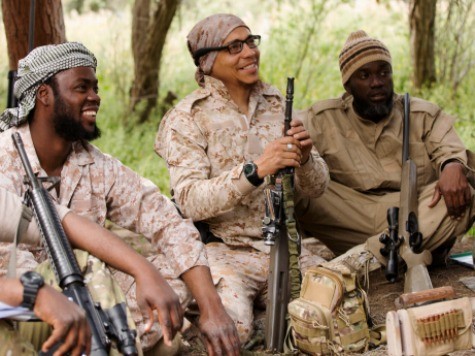The latest issue of the Islamic State (ISIS) magazine, Dabiq, features two stories on jihadis based in the Caribbean – one an interview, one an obituary – encouraging Caribbean islanders to abandon Christianity and join the jihad. In both stories, the jihadis in question boast of having been arrested, investigated, and ultimately released.
ISIS has used Dabiq, an English-language publication, to highlight world regions that the group hopes to activate as a terror hotspot. In the April edition, Dabiq featured multiple stories on “Bengal,” encouraging Bangladeshi Muslims to join jihadis in Syria and Iraq, and especially to conduct attacks on their native soil. Three months later, Islamic State affiliated jihadists attacked an upscale bakery in the nation’s capital, Dhaka, killing 22 people and injuring another 40 in an extended hostage situation.
That they are now focusing on English-language Caribbean islands, then, should be of particular concern for regional law enforcement, as these inducements to jihad have a history of encouraging a minority in these regions to act.
The fifteenth edition of Dabiq, released Monday, features an interview with a jihadi using the nom de guerre Abu Sa’d al-Trinidadi. As his name implies, he left Trinidad and Tobago to join the jihad in Syria and Iraq. Before doing so, he committed numerous acts of jihad in Trinidad and Tobago, but police repeatedly released him during ongoing investigations, allowing him time to leave.
“We would work to accumulate money in order to buy weapons and ammo. Alhamdulillah, we were successful in many operations, and this was only by Allah’s grace,” al-Trinidadi tells the magazine, noting that he worked with a terror cell in the island nation. “Abu ‘Abdillah [a fellow jihadi], my wife, and I were arrested at one point, but the police weren’t able to make a case against us,” he adds.
He and his terror cell members were arrested a second time before being released once again, as they had to commit one last unspecified act of violence before leaving for Syria. Police once again detained and released them.
Dabiq claims “a large number of muhajirin from Trinidad and Tobago” are in Iraq and Syria, despite the nation’s overwhelming Christian population.
In an obituary piece, Dabiq highlights a pair of jihadi brothers from Canada, while prominently noting their Caribbean origins. Abu ‘Abdillah al-Canadi and his brother, Abu Ibrahim al-Canadi, were of Jamaican and Guyanese descent, the magazine notes. They, too, were stopped on their way to Syria and ultimately released.
Traveling to Egypt to “study,” they were detained on their way east:
Abu Ibrahim made up a cover story during the course of the questioning in order to conceal his and his brother’s intentions to perform hijrah and join the mujahidin. When the questioning was over, they made the mistake of having him wait outside the office before they had even called his brother in. This gave him a few precious minutes to tell his brother what they had asked him and how he had responded so that they could coordinate their stories. After Abu ‘Abdillah was questioned they were both released.
The stories highlight both the dangers of temporarily releasing jihadi suspects and the growing number of jihadis of Caribbean origin being drawn to the Islamic State.
U.S. Southern Command (SOUTHCOM) has repeatedly warned that the Caribbean and Latin America are the next frontier for jihadi recruiting.
“There are a fair amount of Muslims in what were the old English colonies down there [in the Caribbean], Jamaica, and Trinidad, Tobago, a few places like that. Overall, not a huge percentage of the population, but significant,” SOUTHCOM chief Gen. John Kelly said in January, announcing that he had evidence of at least one mosque in the region openly associating with ISIS. American officials estimate at least 150 people have left the region to wage jihad in Syria and Iraq.
Last month, a group calling itself Ansar al-Khilafah Brasil pledged allegiance to Islamic State Caliph Abu Bakr al-Baghdadi, the first group in Latin America to do so. The pledge comes shortly before the nation is set to host the 2016 Olympic Games.

COMMENTS
Please let us know if you're having issues with commenting.